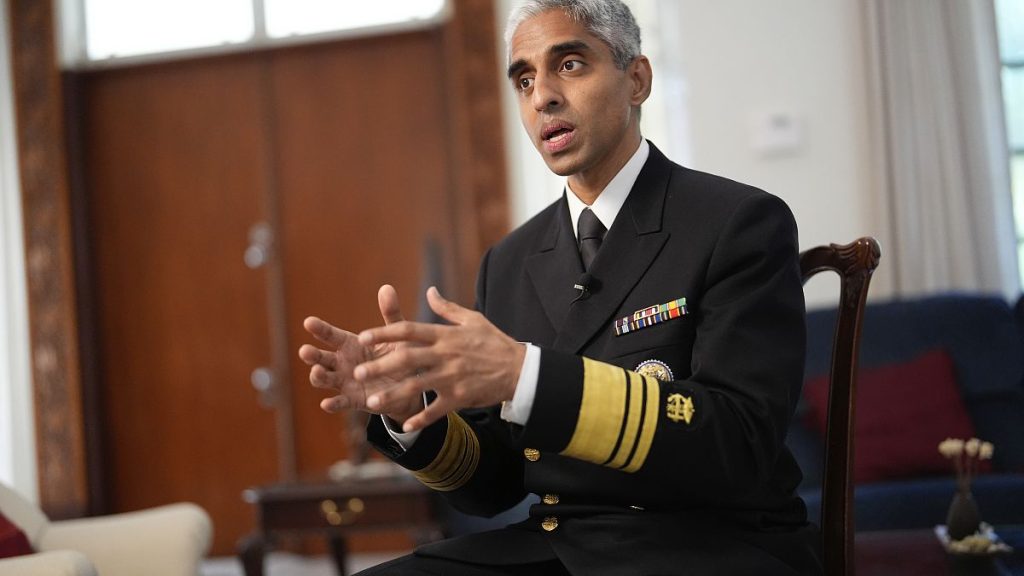The US Surgeon General, Dr. Vivek Murthy, has issued a significant advisory urging for mandatory cancer warning labels on alcoholic beverages, bringing renewed attention to the often-overlooked link between alcohol consumption and cancer. This recommendation, while not legally binding, aims to heighten public awareness of the substantial health risks associated with alcohol, particularly its contribution to cancer development. Murthy emphasizes the urgent need for action, citing alarming statistics that reveal alcohol’s role in approximately 100,000 cancer cases and 20,000 cancer deaths annually in the US. This sobering reality places alcohol among the leading preventable causes of cancer, trailing only tobacco and obesity. Despite the severity of these figures, a concerning majority of Americans remain unaware of the cancer risks associated with alcohol consumption.
The Surgeon General’s advisory underscores the importance of a multi-pronged approach to address this public health challenge. Beyond the proposed warning labels, Murthy advocates for a comprehensive reassessment of existing guidelines concerning alcohol and cancer risks. He further encourages healthcare professionals to actively engage patients in discussions about alcohol-related health concerns, emphasizing their crucial role in disseminating this vital information. This call to action reflects a growing recognition of the need for a more proactive and informed approach to mitigating the health consequences of alcohol use.
The link between alcohol and cancer is not a recent discovery. International health organizations, including the World Health Organization (WHO), have long recognized alcohol as a carcinogen, classifying it alongside other known cancer-causing agents like tobacco and asbestos since 1988. Further reinforcing this established link, a recent large-scale study conducted in the United Kingdom demonstrated a heightened risk of cancer-related deaths among older adults who regularly consume alcohol. These findings, coupled with the Surgeon General’s advisory, solidify the scientific consensus on alcohol’s carcinogenic properties.
While the US contemplates implementing mandatory alcohol warning labels, other countries have already taken decisive steps in this direction. Ireland is poised to become the first nation to require such labels, with implementation slated for 2026. These labels will not only disclose calorie content but also provide crucial information about the risks associated with cancer, liver disease, and alcohol consumption during pregnancy. This pioneering move by Ireland sets a precedent for other nations considering similar measures to protect public health.
In contrast to Ireland’s progress, efforts to mandate alcohol labeling in Europe have faced considerable obstacles. The European Commission’s ambitious Beating Cancer Plan, introduced in 2021, initially proposed mandatory ingredient and nutrition labeling for alcoholic beverages by 2023. However, this proposal encountered staunch resistance from industry groups, effectively stalling its advancement. The subsequent formation of a new Commission further complicated the issue, leaving the future of alcohol labeling in Europe uncertain. This setback highlights the challenges of implementing public health measures in the face of industry lobbying and political complexities.
The US Surgeon General’s advisory, therefore, represents a crucial step towards addressing the pervasive lack of awareness about the link between alcohol and cancer. By advocating for warning labels and encouraging a broader public health dialogue, Murthy seeks to empower individuals to make informed choices about their alcohol consumption. While the advisory’s recommendations are not legally enforceable, they carry significant weight and have the potential to catalyze much-needed policy changes. The contrasting experiences of Ireland and the European Union further underscore the complexities of navigating industry interests and political considerations in the pursuit of public health goals. The path towards comprehensive alcohol labeling remains challenging, but the Surgeon General’s call to action represents a vital step in the right direction, placing the spotlight on the critical need to prioritize public health over commercial interests.














